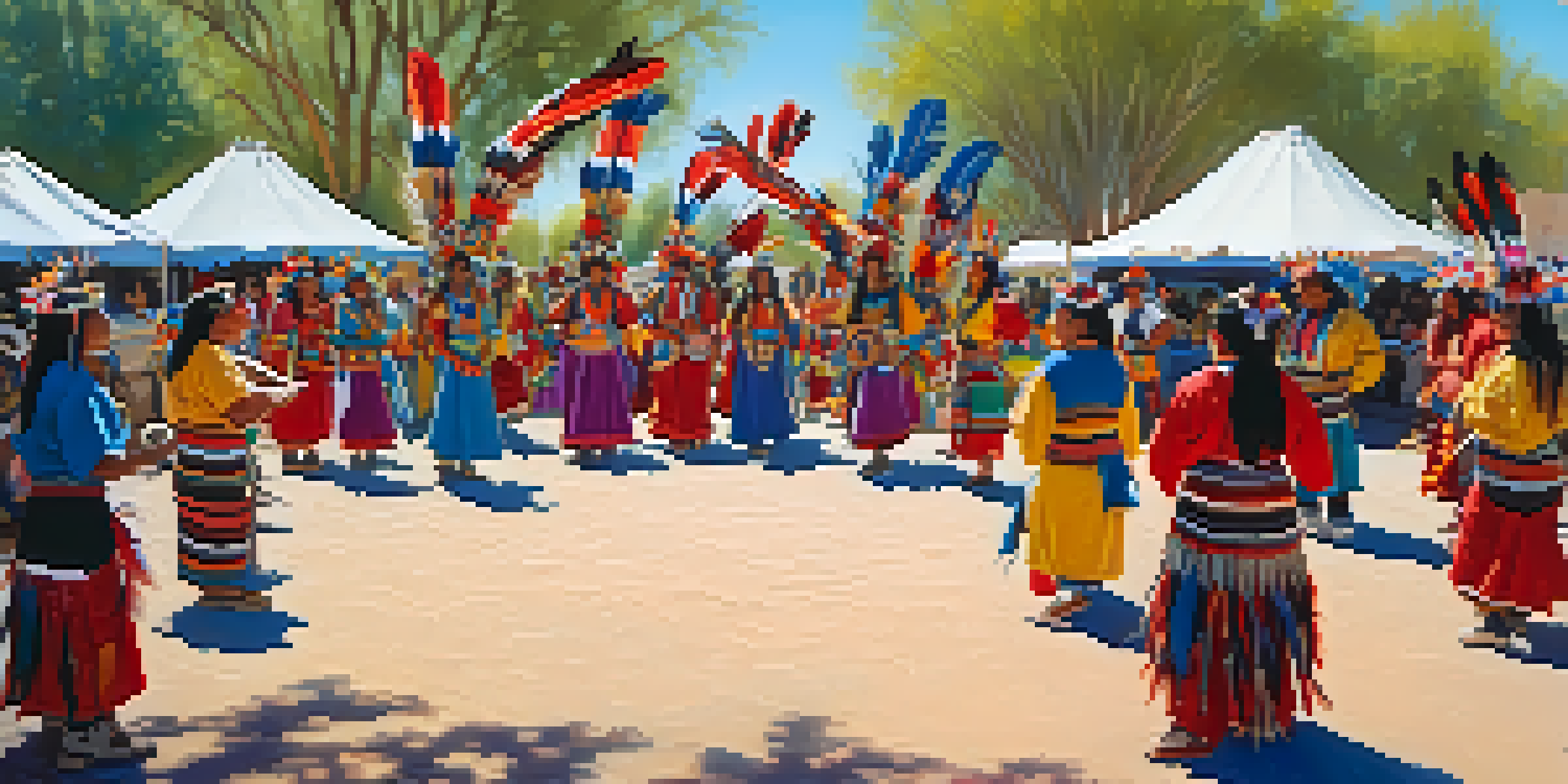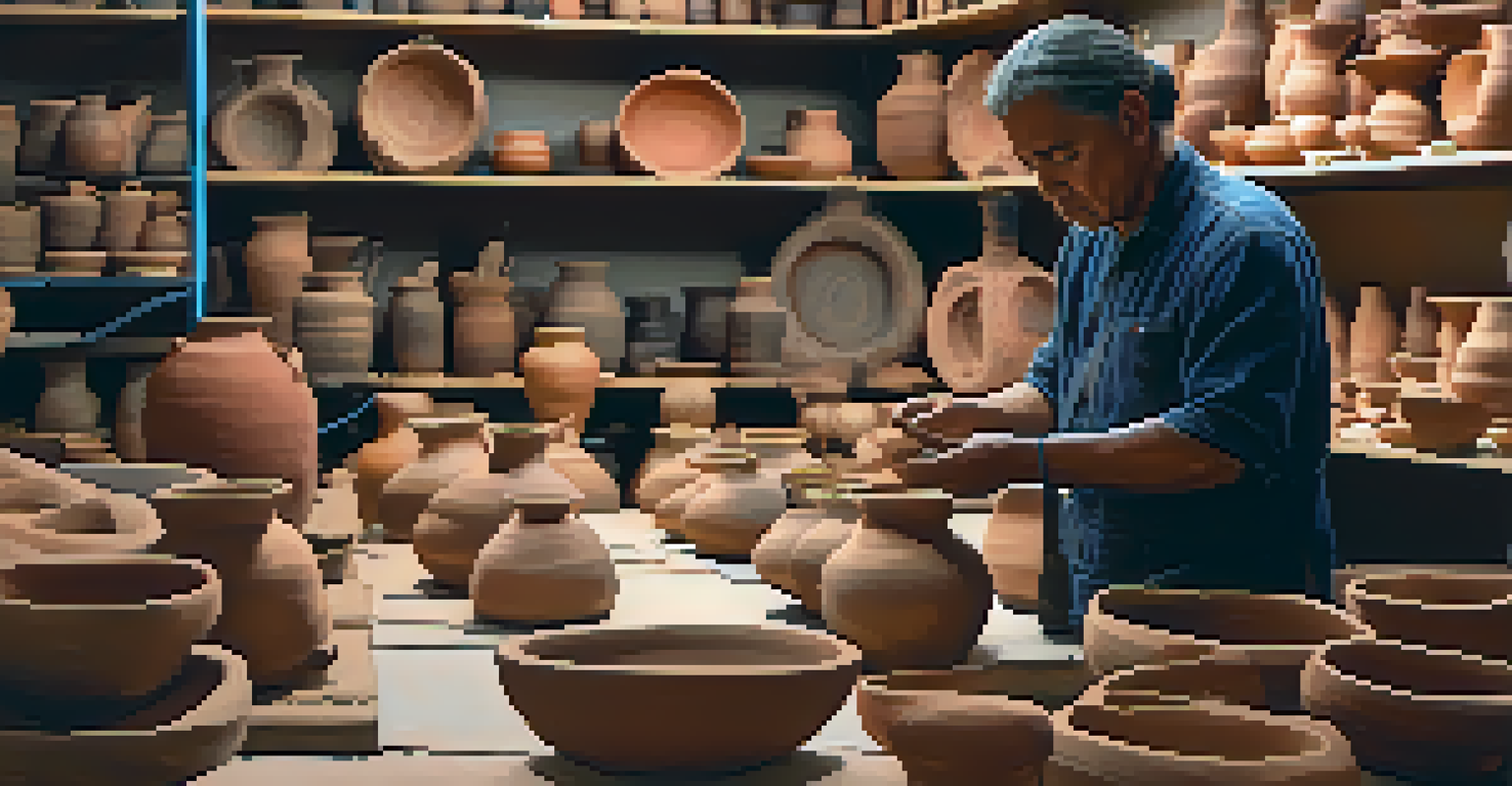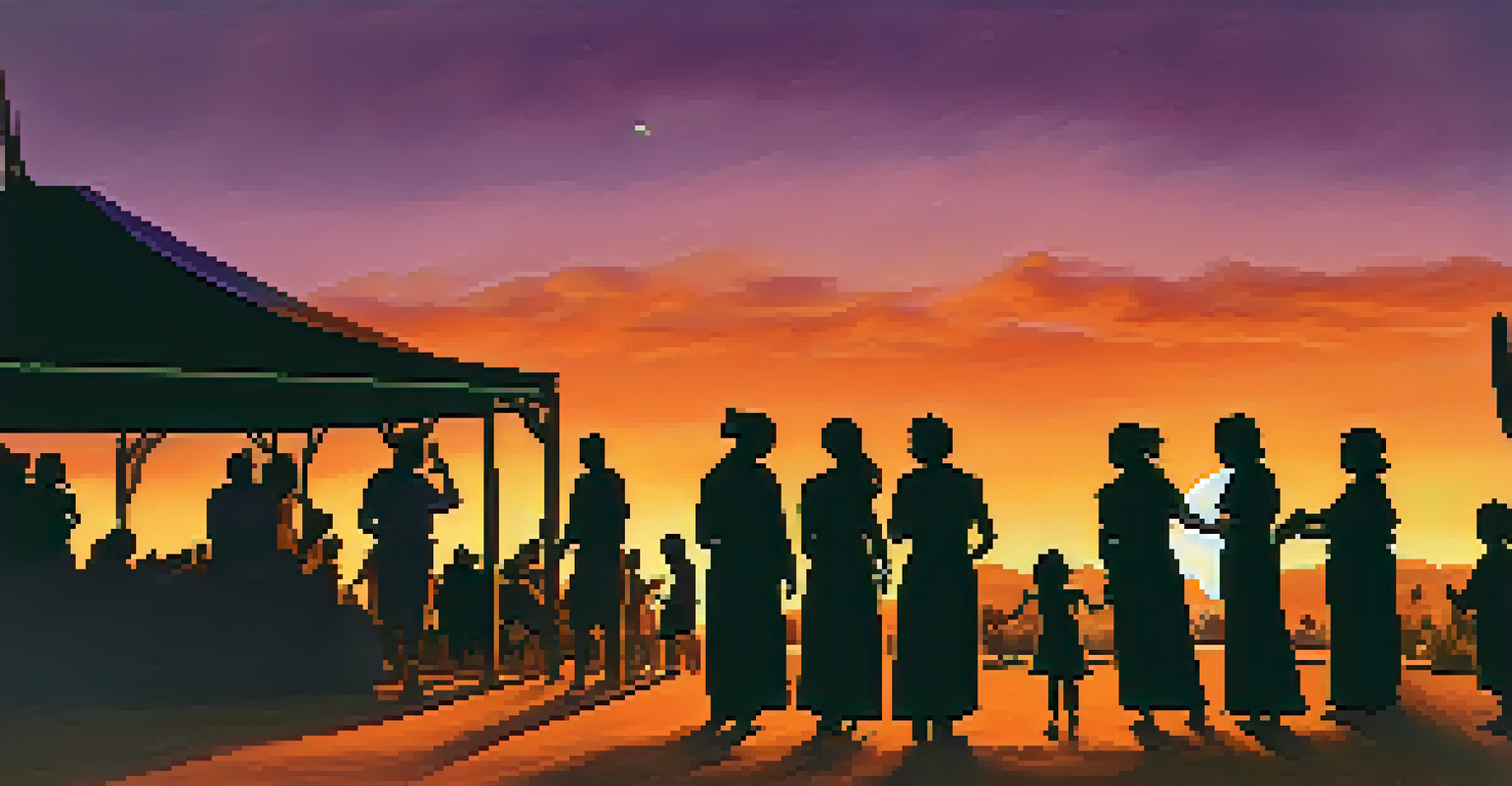Cultural Festivals: Celebrating Indigenous Heritage in Tucson

Understanding the Importance of Indigenous Heritage
Indigenous heritage holds a profound significance in shaping cultural identities. It encompasses traditions, languages, and practices passed down through generations. In Tucson, this rich history is celebrated through various festivals that honor the contributions of Indigenous peoples.
Preserving our Indigenous heritage is not just about honoring the past, but about shaping the future.
These festivals serve not just as celebrations, but as vital opportunities for education and awareness. They invite both locals and visitors to learn about the unique narratives and histories that have shaped the region. Understanding these stories fosters respect and appreciation for diverse cultures.
Moreover, celebrating Indigenous heritage highlights the importance of preserving these cultures for future generations. It encourages community dialogue and a deeper connection to the land and its original stewards, creating a shared sense of purpose among participants.
A Brief Overview of Tucson's Indigenous Communities
Tucson is home to several Indigenous communities, including the Pascua Yaqui Tribe, the Tohono O'odham Nation, and others. Each community has its own unique customs, languages, and traditions that contribute to the rich tapestry of the area. Understanding this diversity is key to appreciating the festivals.

These communities have faced numerous challenges throughout history, yet they continue to thrive and share their culture. Festivals provide a platform for showcasing traditional music, dance, art, and storytelling, allowing attendees to engage with these vibrant cultures firsthand.
Celebrating Indigenous Heritage
Tucson's festivals honor Indigenous cultures, providing education and fostering appreciation for their unique narratives.
By participating in these celebrations, one can gain insight into the resilience and creativity of Indigenous peoples. This engagement not only honors their past but also supports their ongoing cultural revitalization efforts.
Key Festivals Celebrating Indigenous Heritage
Tucson hosts several key festivals that celebrate Indigenous heritage, including the All Souls Procession and the Tucson Meet Yourself festival. Each event offers a unique way to experience the art, food, and traditions of Indigenous cultures. These festivals are vibrant gatherings that draw people from all walks of life.
Art is the most beautiful of all lies; it can tell the truth about who we are and where we come from.
At these festivals, visitors can enjoy traditional performances, art displays, and culinary experiences. For example, Tucson Meet Yourself features Indigenous chefs showcasing traditional dishes, offering a delicious taste of culture. This culinary aspect not only nourishes the body but also educates the palate about Indigenous foodways.
Moreover, these festivals often include workshops and demonstrations that allow participants to engage more deeply with Indigenous traditions. From pottery to dance, attendees can learn skills and practices that have been part of these cultures for centuries.
The Role of Art in Indigenous Cultural Festivals
Art plays a central role in Indigenous cultural festivals, serving as a powerful medium for expression and storytelling. Through various forms of art, Indigenous peoples convey their histories, beliefs, and values. This artistic representation is crucial for cultural preservation.
At Tucson's festivals, visitors can encounter a wide range of art forms, from traditional weaving and pottery to contemporary paintings and sculptures. Artists often share their techniques and stories behind their creations, fostering a deeper understanding of their cultural significance. This connection to the artist enhances the appreciation of the artwork.
Art as Cultural Expression
Art plays a vital role in Indigenous festivals, allowing for storytelling and cultural preservation while supporting local artists.
Additionally, showcasing Indigenous art at these festivals helps support local artists and their communities. By purchasing art, festival-goers contribute to the economic well-being of Indigenous peoples, ensuring that these traditions continue to thrive.
Cultural Education Through Festivals
Cultural festivals in Tucson serve as vital educational platforms for both Indigenous and non-Indigenous attendees. These events provide meaningful opportunities to learn about the histories, languages, and practices of Indigenous peoples. Education fosters respect and can help dismantle stereotypes.
Workshops, storytelling sessions, and panel discussions are common features of these festivals. They offer insights into the challenges Indigenous communities face today, as well as their ongoing efforts for cultural revitalization. This exchange of knowledge encourages dialogue and mutual understanding.
Moreover, educational initiatives during festivals can inspire visitors to take an active role in supporting Indigenous rights and initiatives. By fostering connections and understanding, these festivals empower attendees to advocate for inclusive representation and cultural preservation.
The Impact of Festivals on Community Bonding
Cultural festivals not only celebrate Indigenous heritage but also strengthen community bonds. They create a sense of belonging and unity among participants, fostering connections that extend beyond the festival's duration. This communal spirit is essential in maintaining cultural traditions.
During these celebrations, families and friends come together, sharing experiences and creating lasting memories. The atmosphere of joy and festivity encourages interactions among diverse groups, enhancing social cohesion. It’s a beautiful reminder of the power of culture in bringing people together.
Strengthening Community Bonds
Cultural festivals enhance community connections, creating a sense of belonging and inspiring collaborative initiatives for cultural understanding.
Moreover, these festivals often lead to collaborative initiatives within the community. They inspire partnerships between Indigenous and non-Indigenous groups, promoting a shared commitment to cultural understanding and support for Indigenous rights.
Looking Ahead: The Future of Indigenous Festivals in Tucson
As Tucson continues to evolve, the future of Indigenous festivals looks promising. There is a growing recognition of the importance of Indigenous heritage and a commitment to preserving these cultural celebrations. This momentum can lead to even more vibrant and inclusive festivals.
Innovations in festival programming, such as virtual events and expanded outreach, can further enhance participation. Engaging younger generations is crucial for sustaining these traditions, and festivals can serve as gateways to inspire future cultural leaders.

Ultimately, the ongoing celebration of Indigenous heritage in Tucson not only honors the past but also paves the way for a more inclusive future. By embracing these cultural festivals, we can all contribute to a richer, more diverse community.